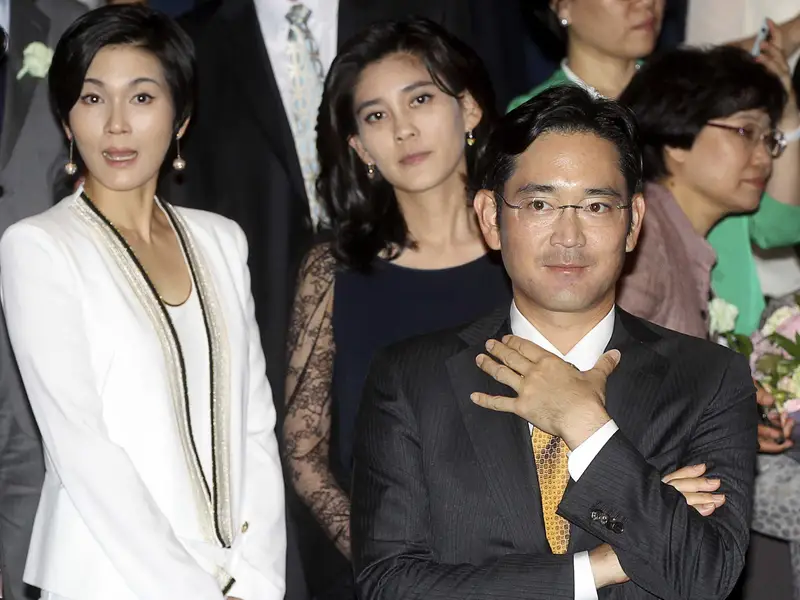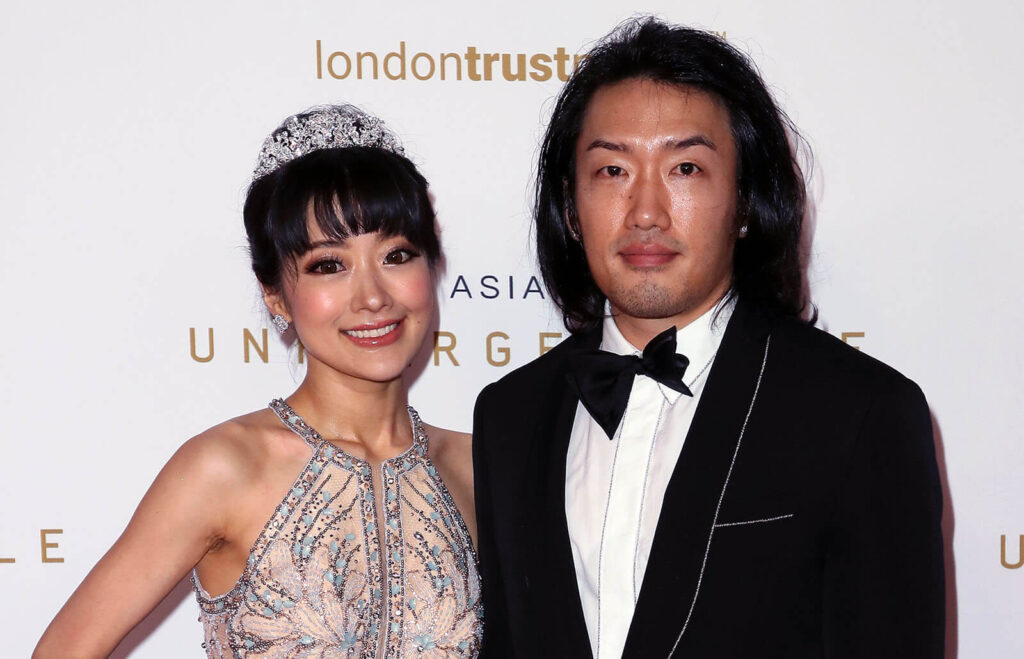Estimated Family Net Worth: $13–15 Billion
Principal Holdings: Samsung Group
Country: South Korea
Known For: Electronics, Technology, Corporate Governance Reform
In the landscape of Asian industrial families, few names resonate more powerfully than the Lee family of South Korea—the dynasty behind the Samsung Group, a global conglomerate with touchpoints in everything from semiconductors to shipbuilding. Often called the “House of Samsung”, the Lee family has steered South Korea’s most influential chaebol (family-run conglomerate) for more than 80 years.
At its center today is Lee Jae-yong, known in the West as Jay Y. Lee. He is the grandson of Samsung founder Lee Byung-chul, the only son of the late Lee Kun-hee, and the fourth-wealthiest person in South Korea. He is also the public face of a company that now accounts for roughly 20% of South Korea’s GDP.
From Dried Fish to Microchips: The Rise of Samsung
Samsung began in 1938 as a small trading company exporting dried fish, noodles, and produce. Founded by Lee Byung-chul, it would evolve in the post-war years into one of the most diversified industrial groups in the world. By the 1970s, Samsung had entered the electronics sector, laying the groundwork for its future dominance in consumer and industrial technology.
Under the leadership of Lee Byung-chul’s son, Lee Kun-hee, Samsung underwent a massive transformation in the 1990s—restructuring its corporate culture, shifting toward design-led manufacturing, and pouring investment into R&D. That vision paid off: today, Samsung Electronics is a global leader in smartphones, televisions, memory chips, and semiconductors, with annual revenues exceeding $200 billion.
Lee Jae-yong: Crown Prince Turned Chairman
Born in 1968, Lee Jae-yong was educated at Seoul National University and earned an MBA from Keio University in Japan. He later pursued a doctorate at Harvard Business School, though he left before completion. Fluent in Korean, English, and Japanese, Lee has long been groomed for leadership—often referred to by Korean media as the “Crown Prince of Samsung.”
He joined Samsung in the 1990s, working his way through various roles before being named Vice Chairman of Samsung Electronics in 2012. After his father, Lee Kun-hee, suffered a heart attack in 2014 and later passed away in 2020, Jae-yong became the de facto head of the group.
Despite not holding the title of chairman until 2022, he was widely seen as Samsung’s key decision-maker. Under his leadership, Samsung increased its investment in semiconductors, artificial intelligence, and next-generation telecommunications, while also exploring acquisitions in biotech and software.

Legal Troubles and Governance Reform
Lee’s leadership has not been without controversy.
In 2017, he was arrested and later convicted in a high-profile corruption scandal involving former South Korean President Park Geun-hye. Accused of bribery, perjury, and embezzlement, Lee was sentenced to five years in prison. Though released on appeal, he was re-incarcerated in early 2021 to serve a revised sentence, sidelining him from active leadership during a critical time in global tech competition.
The scandal sparked widespread public debate about chaebol governance, wealth concentration, and corporate reform in South Korea. Critics argued that the Samsung succession strategy and opaque corporate structure underscored systemic flaws in Korean conglomerate culture.
In response, Samsung began implementing a number of reforms, including pledges to end dynastic control, reduce cross-shareholdings, and expand independent board oversight. In 2022, following a presidential pardon, Lee was formally reinstated and later named Executive Chairman of Samsung Electronics, marking his official return to the company’s top role.
The Lee Family Office and Legacy Holdings
Though Samsung Group technically consists of dozens of independent companies, control is maintained through a carefully constructed network of cross-shareholdings, trusts, and holding companies.
Key family-linked entities include:
- Samsung Life Insurance
- Samsung C&T
- Samsung Electronics
- Samsung Biologics
Together, they form the financial and operational backbone of the family empire.
The Lee family’s estimated net worth is difficult to calculate precisely due to these cross-holdings and private trusts, but most analysts place it between $13 and $15 billion, with Jay Y. Lee personally valued at around $11 billion, according to Forbes.
Succession, Legacy, and National Role
Unlike Western corporate dynasties that often operate privately, the Lee family occupies a public and symbolic role in South Korean society. Samsung’s outsized economic impact makes the family both powerful and politically sensitive.
Public expectations around transparency and reform have grown significantly. Lee Jae-yong’s challenge is to balance global competitiveness with domestic accountability, particularly as South Korea debates the future of its chaebol system.
So far, Lee has signaled a more global-facing Samsung, pushing further into U.S.-based manufacturing and AI R&D, while downplaying family control in favor of institutional governance.

Final Thoughts
The Lee family story is one of vision, reinvention, and controversy—a rare fusion of legacy wealth and contemporary relevance. In a global tech industry dominated by start-ups and celebrity founders, Samsung’s continued success under Lee Jae-yong reflects the enduring influence of dynastic capital in Asia.
Where others move fast and break things, the Lees manage an empire built to endure.
